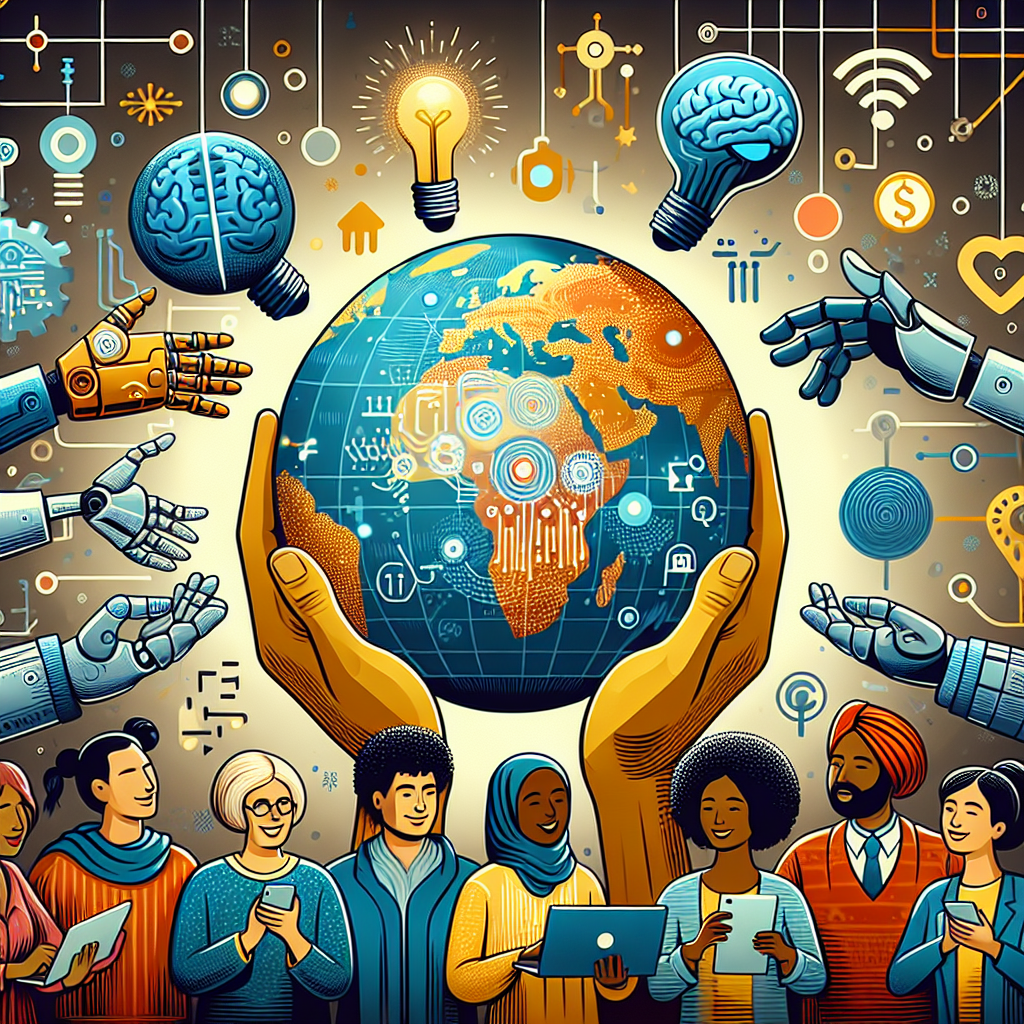Artificial Intelligence (AI) has quickly become one of the most transformative technologies of our time, with the potential to revolutionize industries, enhance productivity, and improve our daily lives. However, the benefits of AI have not been distributed evenly, with many marginalized communities left behind in the AI revolution. Democratizing AI, or making AI accessible to a wider range of people, is crucial for ensuring that the benefits of AI are shared by all.
Democratizing AI is a catalyst for social change, as it has the power to address existing inequalities, empower marginalized communities, and create a more inclusive society. By democratizing AI, we can unlock the full potential of this transformative technology and harness it for the greater good.
One of the key benefits of democratizing AI is the potential to address existing inequalities. AI has the power to automate tasks, streamline processes, and make decisions more efficiently. However, if AI is only accessible to a select few, then the benefits of AI will only be enjoyed by those who have access to it. By democratizing AI, we can ensure that everyone has equal access to the benefits of this technology, regardless of their background or socioeconomic status.
Democratizing AI also has the potential to empower marginalized communities. By providing access to AI tools and resources, we can enable individuals and communities to leverage AI for their own benefit. For example, AI can be used to analyze data and identify patterns that can inform decision-making in areas such as healthcare, education, and social services. By democratizing AI, we can empower communities to address their own needs and create positive change from within.
Furthermore, democratizing AI can create a more inclusive society by fostering diversity and equal representation in the development and deployment of AI technologies. Historically, the AI industry has been dominated by a narrow group of individuals, leading to biases in AI algorithms and systems. By democratizing AI and ensuring that a diverse range of voices are heard and represented, we can create AI technologies that are more fair, transparent, and equitable.
In order to democratize AI, we must address several key challenges. One of the main challenges is access to AI tools and resources. Many AI tools and technologies are proprietary and expensive, making them inaccessible to individuals and communities with limited resources. By investing in open-source AI projects and promoting collaboration and knowledge-sharing, we can make AI more accessible to a wider range of people.
Another challenge is ensuring that AI technologies are developed and deployed in an ethical and responsible manner. AI has the potential to amplify existing biases and inequalities if not carefully designed and implemented. By promoting transparency, accountability, and fairness in AI development, we can ensure that AI technologies benefit society as a whole.
Frequently Asked Questions (FAQs):
Q: What are some examples of democratizing AI in action?
A: One example of democratizing AI is the use of AI-powered chatbots to provide mental health support to underserved communities. These chatbots use AI algorithms to analyze text messages and provide personalized support and resources to individuals in need. By leveraging AI in this way, mental health services can be made more accessible and affordable to a wider range of people.
Q: How can individuals contribute to democratizing AI?
A: Individuals can contribute to democratizing AI by advocating for transparency, accountability, and fairness in AI development and deployment. By raising awareness about the importance of diversity and inclusion in the AI industry, individuals can help ensure that AI technologies benefit everyone, not just a select few.
Q: What are some potential challenges of democratizing AI?
A: Some potential challenges of democratizing AI include concerns about data privacy and security, as well as the potential for AI technologies to be misused or weaponized. It is important to address these challenges through robust regulations, ethical guidelines, and responsible use of AI technologies.
In conclusion, democratizing AI is a catalyst for social change, as it has the power to address existing inequalities, empower marginalized communities, and create a more inclusive society. By democratizing AI, we can unlock the full potential of this transformative technology and harness it for the greater good. However, in order to realize the full benefits of democratizing AI, we must address key challenges and ensure that AI technologies are developed and deployed in an ethical and responsible manner. By working together to democratize AI, we can create a more equitable and just society for all.

